Life Cycles of Ants
Life Cycles of Ants
Overview
Ants are very social creatures, operating in tandem with their colony to create an impressive and highly functional society. They are divided into three different groups within the colony: males, workers, and the queen. Individual ants live, on average, for roughly the span of one year, but colonies will prevail through the lifetime of their queen, who can survive up to 20-30 years depending on the particular subspecies of ant. Similar to the bees, all eggs that are fertilized become females, while all unfertilized eggs mature to be males. Over the course of their lives, the ants pass through four different stages. The first three stages last between six to ten weeks, and the remaining portion of their lives as spent as adults. 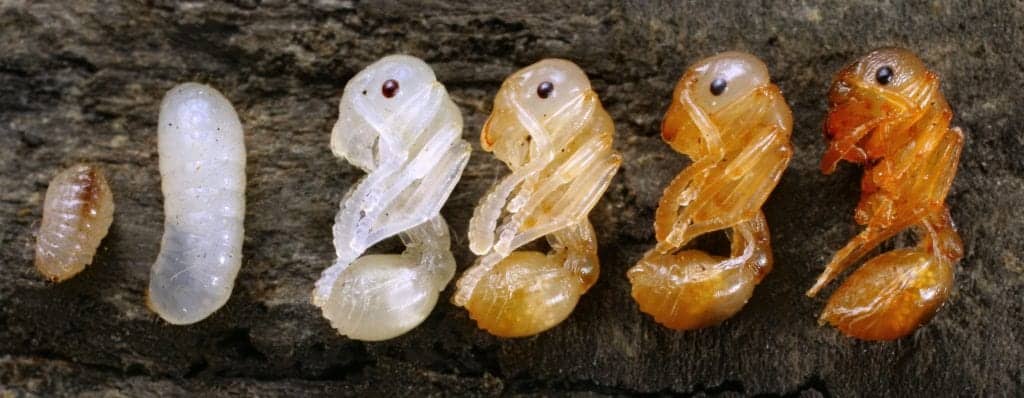
Eggs
The life of ever ant began as an egg. These are laid in the hundreds by the colony’s queen and are tiny soft, smooth oval-shaped little dots. They are a milky transparent color and are about as small as a tip of a pin. Of the hundreds of thousands of eggs produced, not all of them are intended to advance into the larval stage. In these cases, they are often consumed by other adult colony members as nourishment. 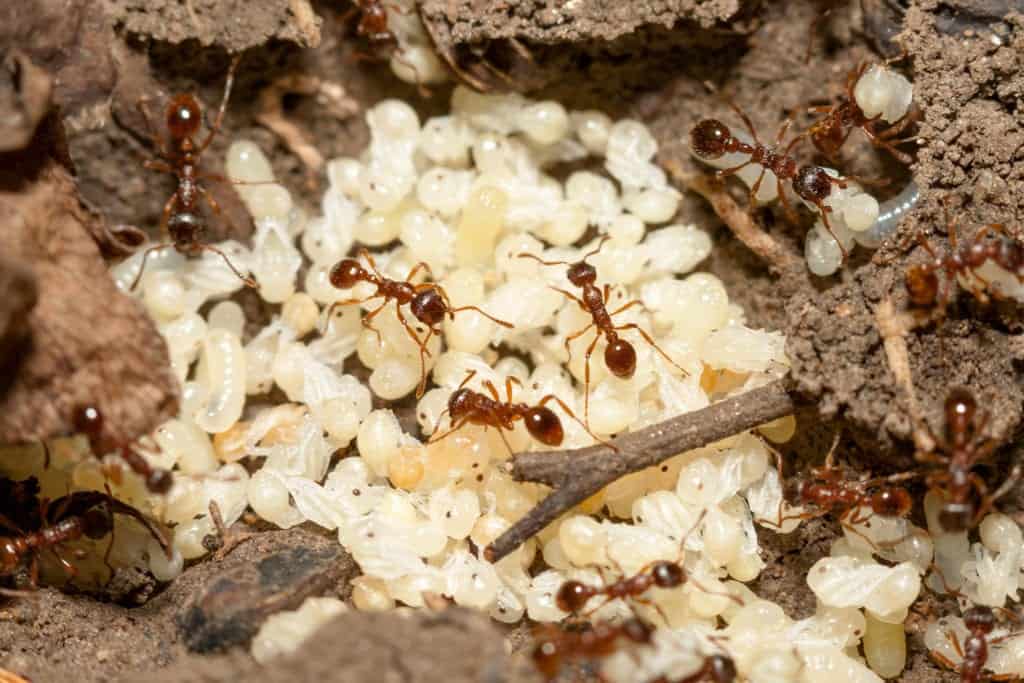
Larvae
Once the eggs hatch, the ant larvae emerges lacking eyes and legs. At this point in their lives, they completely rely on the care of adult nursery-worker ants. They need to be moved throughout the inner chambers of the ant hill in order to keep them at a proper temperature and they also need a constant flow of nourishment as they rapidly grow and molt during this phase. 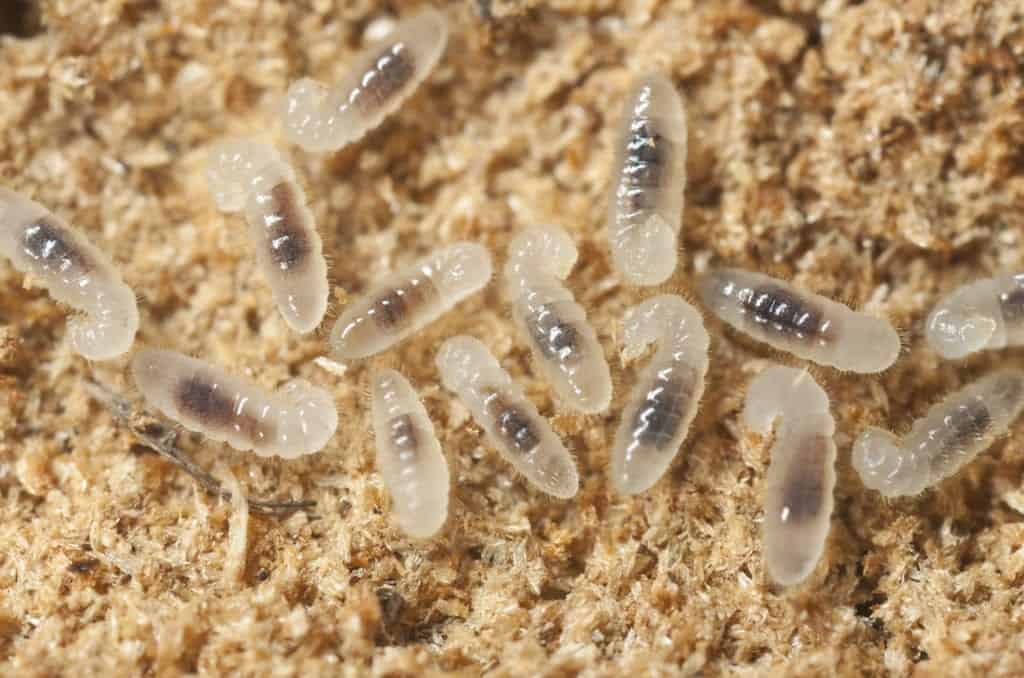
Pupae
Once a larvae has molted into a large enough form, the adolescent ant will begin to undergo metamorphoses. This transformation ends with the ant in the pupal stage, which is a period of rest within the ant’s life cycle. Following such rapid progression in the larvae stage, the pupae remain stagnant with their new legs and antennae held in against their bodies as their exoskeletons begin to harden, turning from a milky white to red-brown-or black hue. Some species of ants even produce a cocoon for protection during this time. From this stage, the ants finally progress into adulthood. 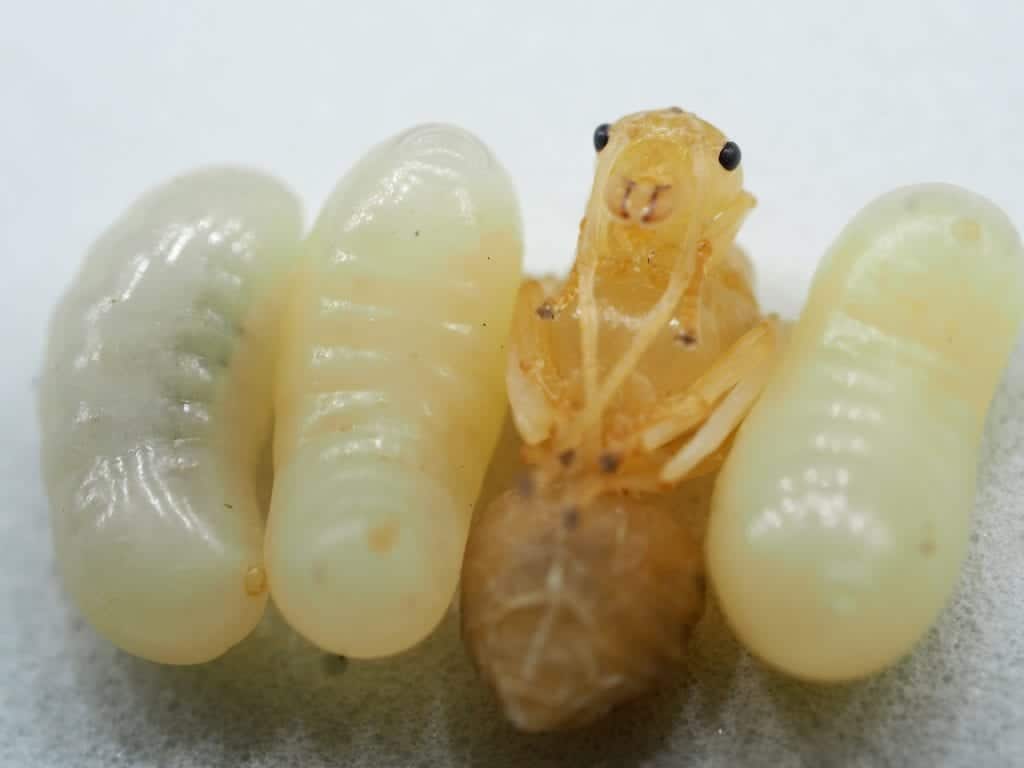
Adult Ants
Similar to the bees, all eggs that are fertilized become females, while all unfertilized eggs mature to be males. Eventually queens will even produce eggs that will become new queens as well. Males – Just like the queen, males have wings. When they reach adulthood, they will leave the colony to mate with other queens. Their life span once entering adulthood lasts only a few weeks. After mating with a queen, they will fall to the ground and expire, ultimately becoming food for the local ecosystem. Females/Worker Ants – Worker ants vary in size and perform different tasks within a colony. Some ants are foragers, others are warriors or nurses or work on the nest construction. These females are unable to reproduce and live out their lives over the span of nine weeks to a few years depending on the subspecies. Queens – Queens are the only females with wings. Once the progress into adulthood, they use the wings to fly away from the colony and mate with males. Following this mating period, her wings fall off and she settles into her colony where she will lay eggs over the rest of her lifetime. 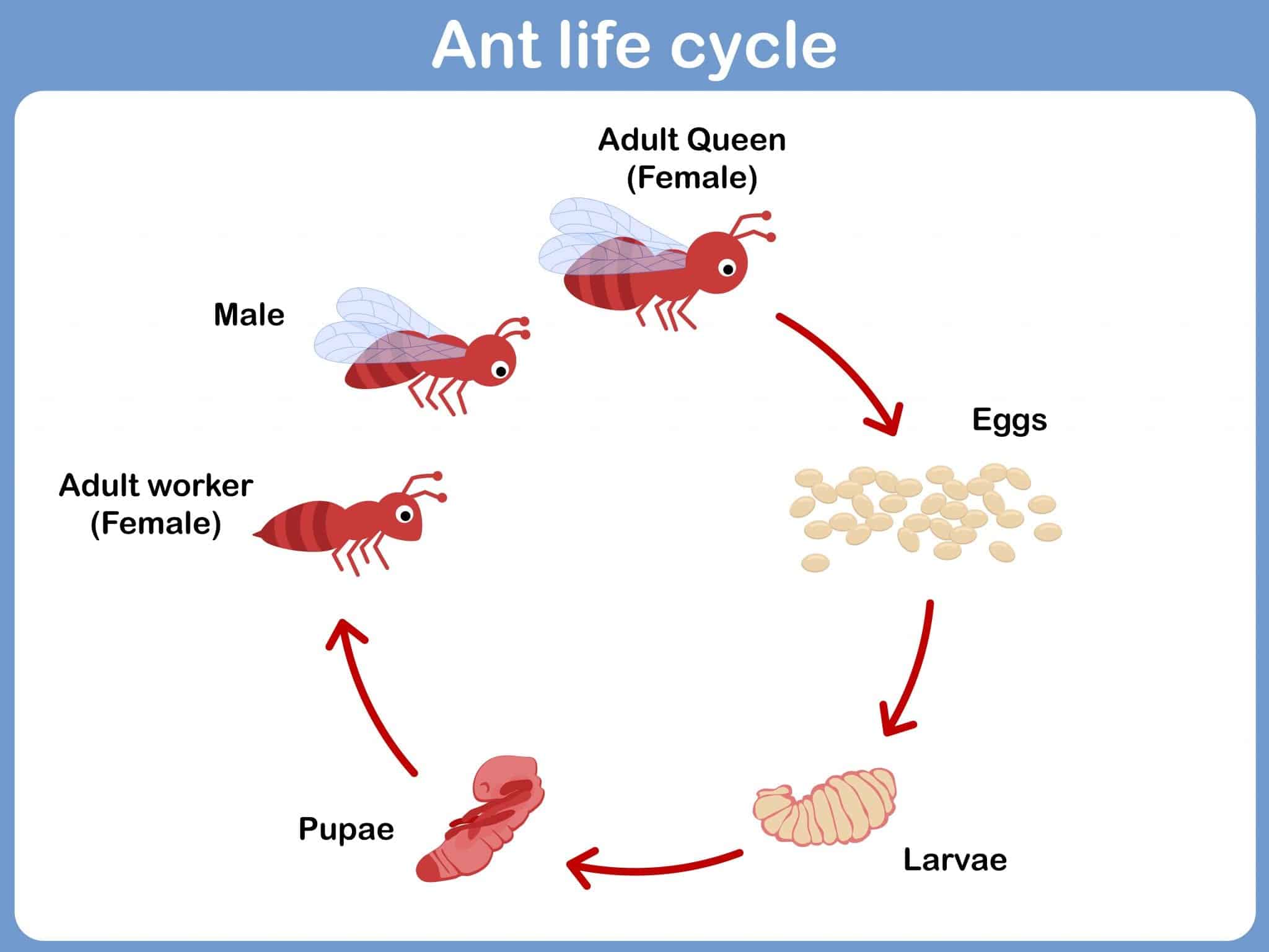
Citations
Ant Life Cycle – Exploring the Different Stage of an Ant’s Life (2017) Earthkind. Available at: https://www.earthkind.com/blog/ant-life-cycle-exploring-the-different-stages-of-an-ants-life/ (Accessed: October 2020). Bennett, K. (2018) Ant Life Cycle, Harvard Forest. The President and Fellows of Harvard College. Available at: https://harvardforest.fas.harvard.edu/ants/life-cycle (Accessed: October 2020). Face to Face with Ants (no date) ASU Ask a Biologist. Arizona State University School of Life Sciences. Available at: https://askabiologist.asu.edu/individual-life-cycle (Accessed: October 2020).
Request a Free Quote Today
(We do not share your data with anybody, and only use it for its intended purpose)


